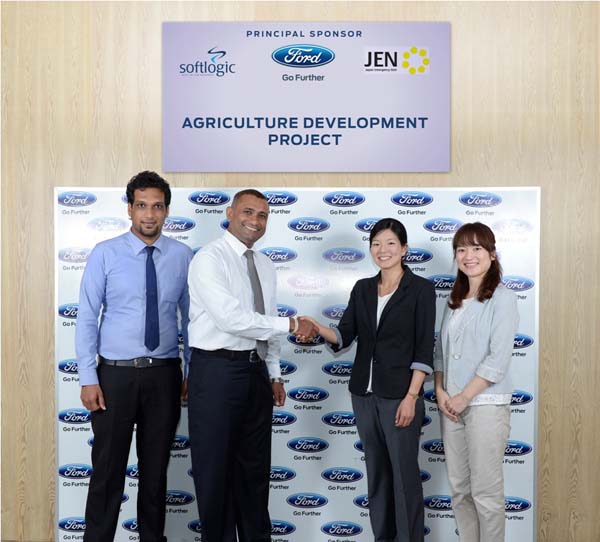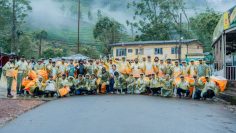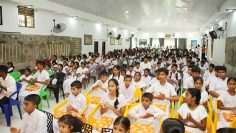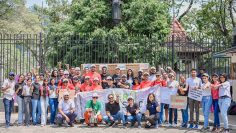
Ford partners with JEN to conduct CSR project in Kilinochchi
Ford Motor Company, represented in Sri Lanka by Future Automobiles, a subsidiary of Softlogic Holdings, has awarded a grant to JEN (Japan Emergency NGO) to carry out an agricultural livelihood project in Kilinochchi.
Utilising the funding from Ford, JEN will be able to assist people who have returned from displacement regain their livelihood through agriculture. JEN’s project will focus on constructing agro-wells which can enable agriculture during dry seasons and increase income to achieve self-reliance in the long-term.This project aims to contribute to two main goals. Firstly, to enable farmers to expand their agricultural practices and increase income through establishing access to water and secondly, to strengthen the community to work together to jointly solve problems encountered in the community.
Ford funding will be able to partially cover the project in Kilinochchi, targeting 54 families. The funding for this project has been granted by Ford’s Conservation & Environmental Grants programme. In 2014 Ford was recognized as one of the world’s most ethical companies by Ethisphere, for the fifth year in a row. Ford has also been named as one of Corporate Social Responsibility magazine’s 100 Best Corporate Citizens in the U.S.
JEN’s work in Sri Lanka commenced in 2005 when the organization first assisted the tsunami-affected communities in Hambantota. Since then, JEN has developed various relationships with communities and stakeholders in Sri Lanka, moving from Hambantota to the east in Ampara and Batticaloa, and to the north in Vavuniya, Kilinochchi and Mullaitivu. JEN also conducted rapid assistance in Manik Farm when the camp was initially established. Projectsinclude emergency relief kit distribution, livelihood development in fisheries and agriculture and shelter provision.
Commenting on the grant, Chamath Tennekoon – CEO of Future Automobiles (Pvt) Ltd stated, “We believe this grant to JEN will play a significant role in helping to assist people who have returned to their homes and communities, giving them opportunities to rebuild their lives by investing their time and effort in agriculture. As an advocate of organic and healthy agricultural practices myself, I valued the opportunity to assist agricultural communities in need, and we hope to continue to support JEN in their excellent work in the areas of clean drinking water and environmental sustainability.”
Chiaki Ota –Program Officer of JEN stated, “JEN has been working with Ford’s funding partner GlobalGiving over the past five years, which has led to thefunding of several successful projects across the globe.We are grateful to have received funding from Ford to build on our achievements in Sri Lanka. We are excited to cultivate a new relationship with Ford in Sri Lanka, and hope to welcome the team to our project sites in Kilinochchi, and to exchange information and best practices to make this project even better and more beneficial to the communities we serve.”
Over the past several years, Ford has supported numerous projects and causes in Sri Lanka, as part of its Conservation and Environmental Grants Program. Most recently, Ford awarded a grant to World Vision Lanka Limited for a water and sanitation project in Vaharai, Batticaloa District. The project is to provide safe drinking water to over 220 families living in the area.In 2014, Ford awarded a US$20,000 grant to the Field Ornithology Group of Sri Lanka (FOGSL), while in 2013, the company awarded two organisations – The Tree Society of Sri Lanka and the Wanasarana Thurulatha Swechcha Society – a total of US$15,000. In 2012, the “Fire Prevention in Knuckles Forest Reserve” project was selected as the inaugural recipient in this program.
Established in January 1994, JEN began by providing emergency assistance to refugees and IDPs (internally displaced persons)in the former Yugoslavia. Over the years, JEN has conducted assistance after man-made and natural disasters, from emergency to recovery phase. JEN has kept true to its motto of “Support the Power to Live”, by nurturing local capacity-building, enabling communities to achieve self-reliance.






